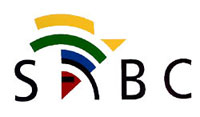This Day in History: July 17, 1950
Additional Date: July 17, 1950
The history of broadcasting in South Africa can be traced back to 1923, when the first wireless broadcast was made in Johannesburg.
By April 1927, an hour of Afrikaans programming and one daily news bulletin in Afrikaans was broadcast. Insufficient funding began to hamper the progress of the broadcaster and an investigation into all aspects of broadcasting in South Africa was launched by the Prime Minister of South Africa, JBM Hertzog.
The outcome of the investigation resulted in the establishment of the South African Broadcasting Corporation (SABC) and by 17 July 1950 a commercial radio service was established, with daily news bulletins in both English and Afrikaans – this radio service was popularly known as Springbok Radio.
Broadcasts were initially limited to the Johannesburg area, but soon became available in most major centres in South Africa. The SABC grew in the 1960s and 1970s as more radio stations, broadcasting in selected African languages, were established. They were still considered to be mouthpieces of the Nationalist Party (NP) government throughout the 1970s and 1980s. Another development in the second half of the 1970s was the introduction of television in South Africa after the government had prevented this for a number of years. This medium was also considered to be controlled by government, thereby promoting their interests.
In the last fifteen years, having been transformed into a public broadcaster, the SABC is frequently being criticized for reneging on its mandate to not promote the interest of the government. It is, however, quite significant that public participation in the business of the SABC has increased remarkably in the last fifteen years.
References:
Erasmus, F. (2004) The History of South African Broadcasting [online] Available at: pumamouse.com [Accessed 6 July 2009]
Anon, (n.d.), ‘Sector Broadcast’ from Media Manager [online] Available at: www.mediamanager.co.za [Accessed: 14 July 2011]
